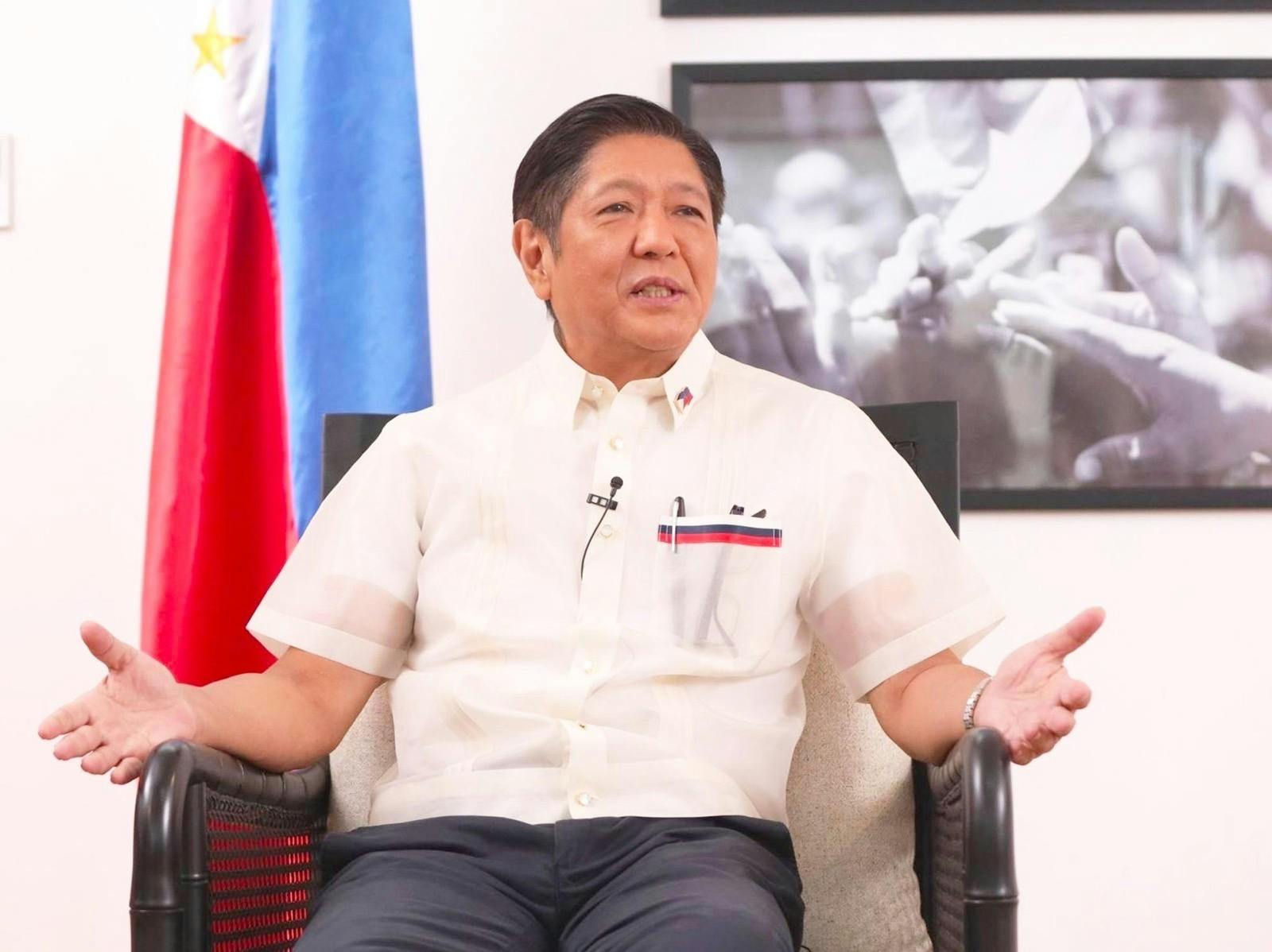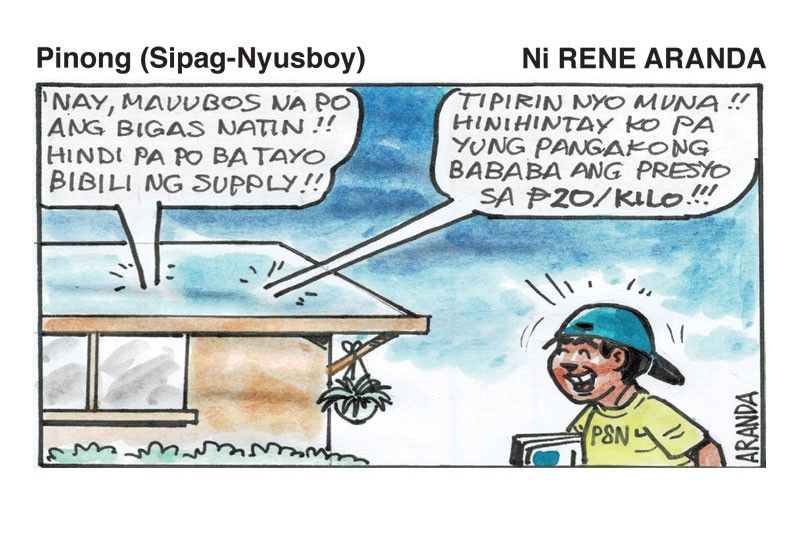HEADLINE: MANILA- Marcos Sets Into Motion P20 Per Kilo Rice Plan
President-elect Ferdinand “Bongbong” Marcos Jr. said having the price of rice significantly slashed to as low as P20 per kilo is an “aspiration” or target of his administration.

President-elect Ferdinand “Bongbong” Marcos Jr. has set into motion a plan he raised during the campaign to lower the retail price of rice to P20 per kilo without sacrificing the earnings of local farmers.
Marcos, the country’s first majority elected president, said having the price of rice significantly slashed to as low as P20 per kilo is an “aspiration” or target of his administration.
Ads by:
Memento Maxima Digital Marketing
@[email protected]
SPACE RESERVE FOR ADVERTISEMENT
…
….
“We need to form the value chain. I’m already in talks with several traders and asked them if it’s possible to hold the current prices for a few months. I think we’ll be able to do it as a first step,” he said in an interview last Thursday, May 26.
“But in the long term we need to fix the value chain. That’s the only way to do it,” Marcos pointed out.
Several quarters, particularly farmers’ groups, have belittled Marcos’ pronouncement as nothing more than an empty campaign promise.
The president-elect explained that one of the biggest challenges to this goal is the aging population of local farmers, which he attributed to lack of interest of the youth in agriculture as a profession.
“Unfortunately farmers don’t want their children to become farmers too. To address this, we must employ new technologies, it has to be industrial farming to attract the youth to pursue careers in agriculture,” he explained.
He also emphasized his administration would protect the local agriculture industry amid threats from entry of bigger volumes of cheaper imported agricultural products, as he expressed reservations regarding the ratification of the mega trade deal Regional Comprehensive Economic Partnership (RCEP).
Marcos cited the need for further study of RCEP to determine its true impact on the country’s agriculture sector.
“I do not know if our agriculture sector is sufficiently robust to take on the competition that the opening of the markets (through RECEP) will cause,” he said.
“We should study it carefully, that if we ratify it now what will be the effect on the farming community; our farmers especially, they need protection,” he said.
He stressed the country’s farm sector should be in a competitive position before the country enters into another trade agreement.
“Because if they won’t be able to compete, we might lose local producers and everything will be imported. We don’t want that,” he argued.
The RCEP, a trade accord that involves the 10-member ASEAN along with China, India, Japan, South Korea, Australia and New Zealand, was approved by the Palace in September last year and brought to the Senate for concurrence.
Treaties or international agreements entered into by the government require Senate concurrence.
Prioritize economy
With the country facing a looming fiscal crisis due to the impact of the COVID-19 pandemic, the incoming administration must prioritize the economy over the plan to shift to federalism, according to former socioeconomic planning secretary Ernesto Pernia.
During an interview with “The Chiefs” over Cignal TV’s One News on Friday night, May 27, Pernia said shifting to federalism and amending the Constitution can wait considering that the next government have other “urgent matters” to attend to.
“I would not go into that in the first year of the new administration,” the former National Economic and Development Authority (NEDA) chief said when asked about the possible Charter change as soon as the next administration comes in.
“There’s a lot of effort needed in terms of fueling economic growth… It’s not as urgent as the fiscal crisis that we are facing,” he added.
Marcos ran under Partido Federal ng Pilipinas, which pushes for the shift of the form of government to federalism.
Pernia said such shift would be more difficult now considering the impact of pandemic and other external factors, including the war between Russia and Ukraine.
“It’s going to be more difficult to do that now with the economy not in good shape as it was when we were talking about federalism,” he said, referring to the first part of the Duterte administration.
“Frankly, I’m not keen about federalism because our … they are very unequal in terms of development, resilience and resources. It’s very difficult to have different federal states or regions that are so unequal in terms of economic growth, resource base and all that,” he added.
Duterte also ran with a platform of shifting to federalism, but proposals to amend the Constitution did not push through over the past six years.
Ads by:
Memento Maxima Digital Marketing
@[email protected]
SPACE RESERVE FOR ADVERTISEMENT
.
Cohesive economic team
Asked about the incoming economic team of Marcos, Pernia said he is a “bit more confident” as they are expected to work cohesively.
Marcos earlier announced his choice of the following members of his economic team: former budget secretary and incumbent Bangko Sentral ng Pilipinas (BSP) Governor Benjamin Diokno as secretary of finance; former NEDA chief Felipe Medalla as BSP governor; and San Miguel Tollways Corp. chief Manuel Bonoan as public works and highways secretary.
Arsenio Balisacan, who served as NEDA chief during the administration of the late former president Benigno Aquino III, will also return to his previous post.
Marcos is also expected to appoint former University of the Philippines president and Management Association of the Philippines president Alfredo Pascual as trade and industry secretary.
Other appointees on key fiscal posts, including the Department of Budget and Management, Bureau of Internal Revenue and Bureau of Customs have yet to be to announced.
According to Pernia, the choice for agriculture secretary will also be important given the role of the sector in ensuring food sufficiency in the country.
He stressed the need to implement better tax administration to increase revenue collection.
“I think the better approach is to really tighten tax administration and make sure that tax collection is done correctly and that there are no tax evaders or leakages, no wasteful spending,” he said.
“Later on, if still not enough, then maybe we should start implementing those tax measures that were mentioned by DOF,” added Pernia, referring to the Department of Finance’s proposal to implement new taxes to address the gaps brought about by debts incurred over the past years to address the pandemic.
The former NEDA chief stressed that new taxes, if imposed, must “hit the richer classes more than the poor income classes.”
“Tax administration is very imperfect in our country. Just improving tax administration can already generate a substantial amount of revenue,” said Pernia.
“We need better tax administration so that leakages will be minimized. Those who are supposed to pay taxes should pay taxes. The problem, though, is that the incoming president has not paid his taxes so it’s not a good example,” he added, referring to the issue involving the estate tax of the Marcos family. – With Janvic Mateo
.
 Ads by: Memento Maxima Digital Marketing
Ads by: Memento Maxima Digital Marketing
@[email protected]
SPACE RESERVE FOR ADVERTISEMENT












